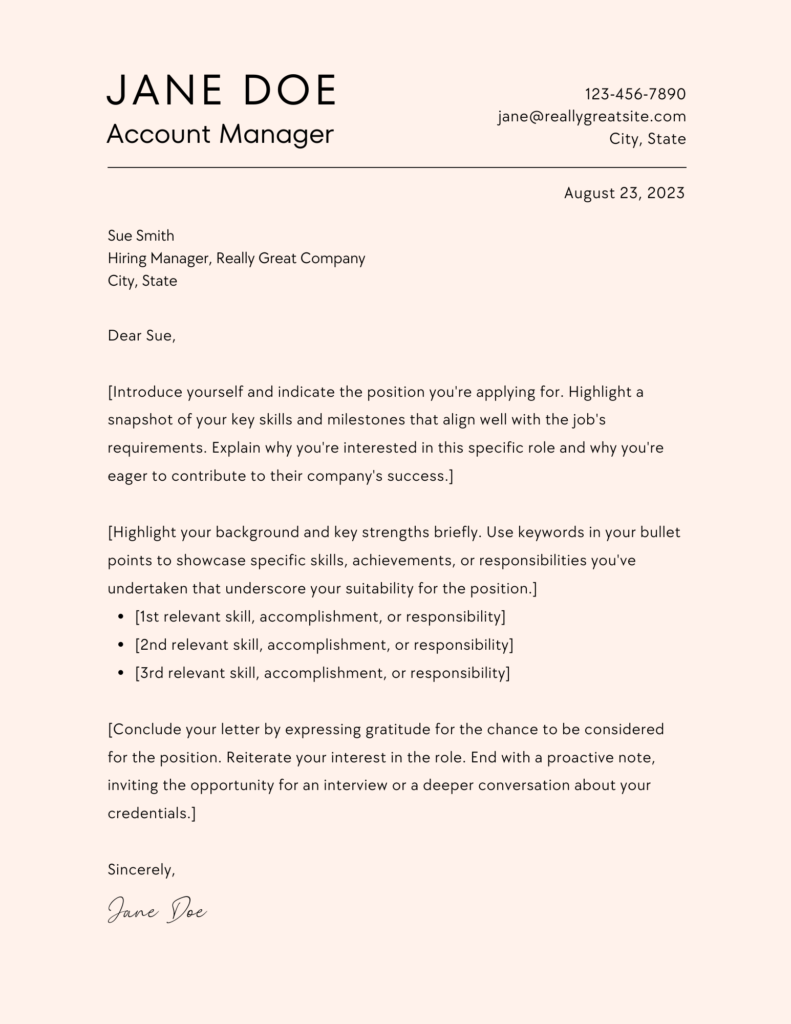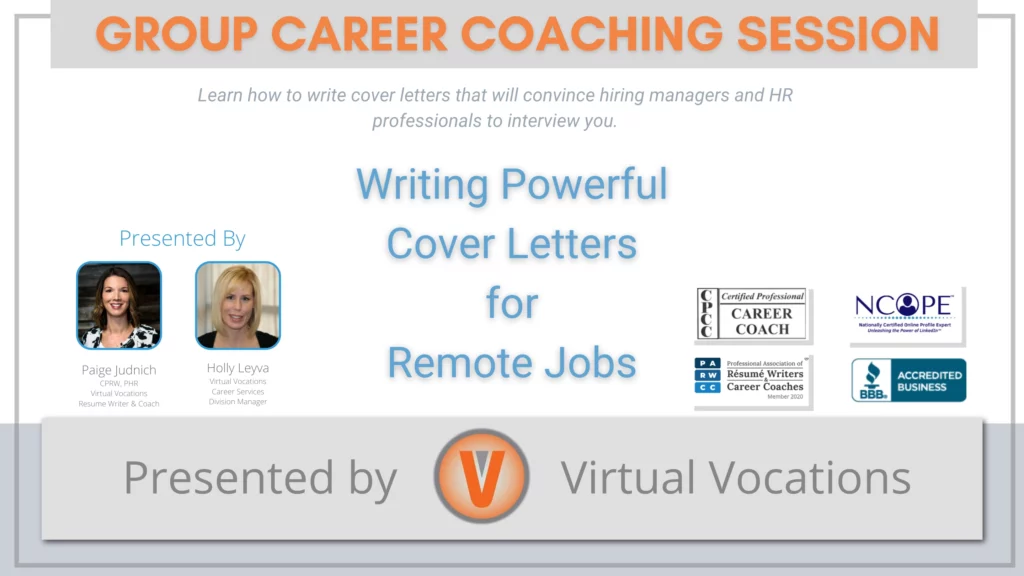Amidst the ever-evolving job search landscape, there’s a recurring debate: Is a cover letter truly necessary? While some might see it as an antiquated formality, its value lies in offering recruiters and hiring managers a window into your personality, especially when they’re sifting through a deluge of resumes for a single position. So, how do you effectively convey your unique essence and fit for the job while keeping your cover letter brief? And how long should a cover letter be in the first place? Let’s dig in!
Downsides of Long Cover Letters
Imagine opening a letter and being met with a wall of text. It’s intimidating. Overloading a cover letter runs the risk of diluting its impact. Not only do long cover letters risk losing your reader’s attention, but they might also cloud the message you’re trying to convey. Additionally, a rambling cover letter can give off the impression of a lack of focus or clarity. Precision in communication is not just a skill; it’s an art. And in the job application world, it’s often the art that seals the deal.
Why Brevity Works: The Hiring Manager’s Perspective
Put yourself in a hiring manager’s shoes. Each day might usher in hundreds of applications. Time becomes a precious commodity. A succinct and straightforward cover letter not only respects their time but also signifies your ability to communicate effectively. A crisp, concise letter is like a breath of fresh air. It stands out. It captures attention. So, keeping it brief might just be your key to the elusive door of opportunity.
The Ideal Length: Quality Over Quantity
There’s an oft-cited adage in the world of job applications: a cover letter should be as long as necessary, but no longer. Typically, this translates to about half a page to a full page. But length aside, the key is the content. Your goal is to be concise yet compelling. A well-crafted cover letter, no matter its length, brings to light the most important points of your career.
For many hiring experts, the sweet spot for a cover letter tends to be between 250 to 400 words. This range ensures you remain focused on your most relevant accomplishments and attributes without overwhelming the reader. However, there’s a caveat: the word count is a guideline, not a strict rule. Depending on the nature of the job and the industry, there may be occasions when slightly extending beyond this range is justified.
Also, be conscious of fluff. Every sentence should serve a purpose, adding value to your narrative. This is where rigorous editing plays a significant role. You want to focus on refining your message, making it sharper and more impactful. And remember, while the word count is an essential guide, the ultimate goal is to make those words count.
Exceptions to the Rule of ‘How Long Should a Cover Letter Be?’
While brevity is golden, there are scenarios where elaboration becomes necessary. Perhaps you’re looking for a research-centric role where detailing your past projects is crucial. Or maybe you’re venturing into a niche industry that requires a deep dive into specific expertise.
In these cases, a longer cover letter can serve as a testament to one’s intricate understanding and unique experiences. It’s not about flouting the rules, but rather understanding when they can be flexibly applied.
Harnessing Keywords: The Art of Being Brief Yet Strategic
When writing your cover letter, keywords play an understated yet pivotal role. As hiring processes become increasingly digital, many companies use Applicant Tracking Systems (ATS) to sift through the mountains of applications they receive. These systems scan cover letters and resumes for specific keywords related to the job description. Missing these can mean your application might never even reach human eyes.
But here’s the challenge: how do you incorporate these vital keywords without turning your cover letter into a wordy laundry list? The trick lies in using these terms organically. Instead of merely listing skills, frame them within the context of your achievements or experiences. For instance, if “project management” is a keyword, you could include a bullet point that says, “Responsible for project management duties, overseeing cross-functional teams to drive milestones and deliver results on schedule, exemplifying my commitment to both leadership and team collaboration.”
Being concise doesn’t mean sacrificing content. By strategically using keywords, you not only optimize your cover letter for ATS but also demonstrate a clear understanding of the role and its requirements, making an impact with every word.
Cover Letter Example
Here’s a cover letter example that not only has the ideal length, but also seamlessly weaves in an engaging introduction, concise bullet points on your relevant qualifications, and a gracious conclusion expressing your eagerness for the next phase of the hiring process.

3 Tips for Achieving the Perfect Length
Crafting a concise cover letter poses its challenges, especially when you’re eager to share your full story. However, it’s pivotal to remember you’re presenting only the highlights. Offer just enough tantalizing information to secure that all-important interview invitation, where you can delve deeper into your qualifications and experiences.
- Edit with a Ruthless Eye: Sometimes, less is more. Trim the fat and retain the essence.
- Tailor for the Position: Avoid generic statements. Address the specific role and company you’re applying for.
- Use Active Voice: It’s direct and packs a punch. For instance, “I managed a team” is more impactful than “A team was managed by me.”
The Role of Formatting and Design
Also, don’t forget that a cover letter should be visually inviting. Generous use of white space, bullet points, and varied sentence lengths can make the content digestible and engaging. Remember, the design can be a silent ambassador of your message. An organized, well-formatted cover letter subtly conveys meticulousness and attention to detail, qualities often revered by employers.
Making an Impact
The quest for the perfectly sized cover letter is less about counting words and more about weighing their value. At the end of the day, it’s about making an indelible impact. So, as you embark on your job-seeking journey, focus not just on filling space, but on crafting a narrative that resonates, compels, and ultimately, makes a mark.
Need More Help with Writing Your Cover Letter?
If you’re determined to craft a standout cover letter that resonates in the world of remote work, remember, you don’t have to navigate this journey alone. Virtual Vocations Career Services is here to offer specialized guidance tailored to your unique needs. Reach out to our team today, and let’s work together to ensure your cover letter not only meets the length criteria but genuinely makes an impact. Your dream remote job is just one compelling cover letter away!
Which tip best helped you learn how to create a more concise and compelling cover letter? Connect with Virtual Vocations on Facebook, Twitter, LinkedIn, Instagram, and YouTube to share your thoughts and tips. We’d love to hear from you!

Join Virtual Vocations
Joining Virtual Vocations grants you access to our hand-picked remote jobs database. Learn how our service works, browse job leads by location and career category, or search hundreds of hand-screened remote jobs to find legitimate work-at-home job leads that match your skills and background. Register for free or contact us for more information on our service guarantee.
Check out our menu of Career Services provided by our team of certified professionals, including resume and career coaching services for remote jobseekers. Resume assessments and writing, LinkedIn profile enhancement, and cover letter writing are available to maximize the success of your remote job applications. Discounts on all services available to subscription members, become one now.







